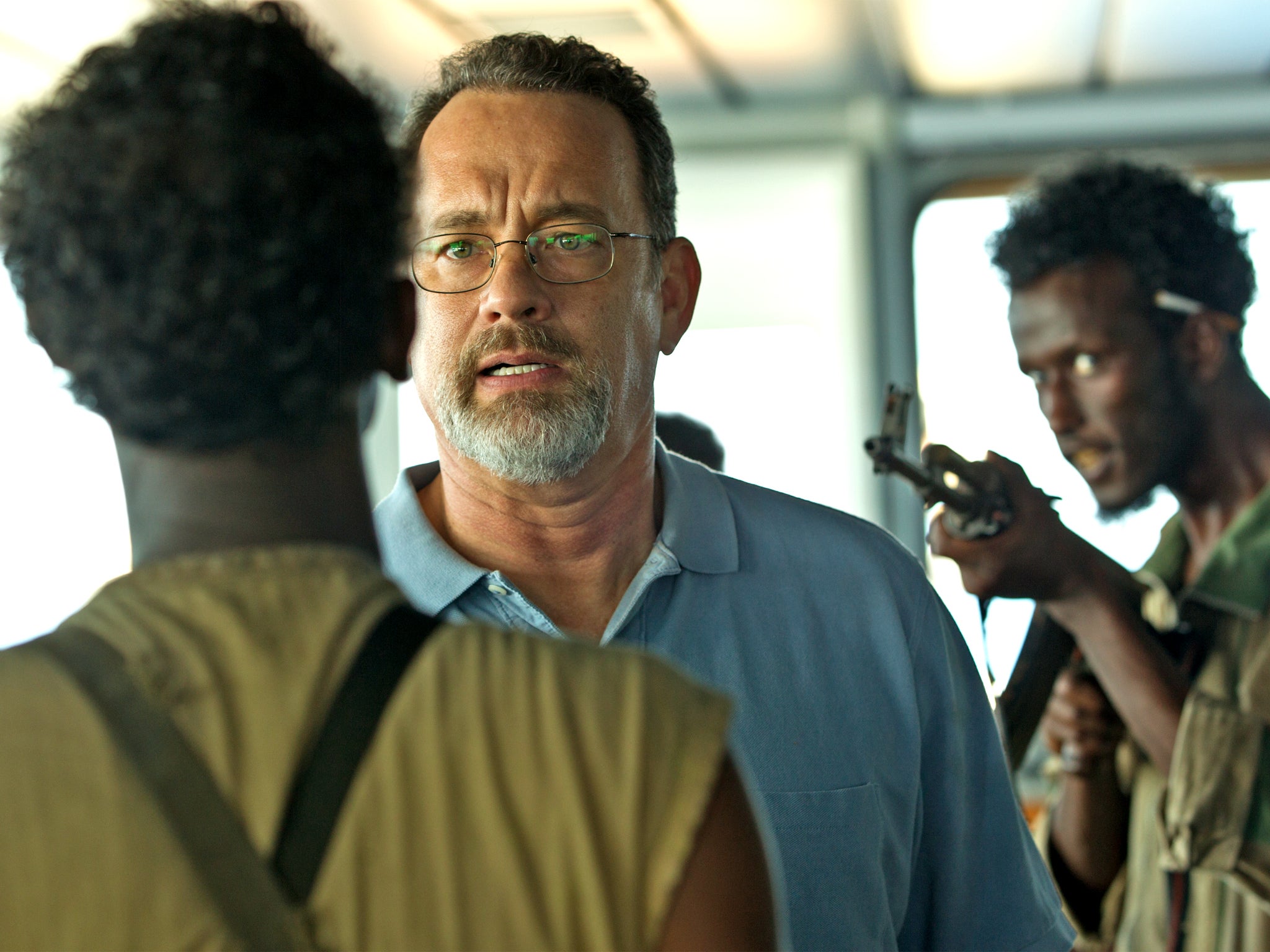First night: Captain Phillips - the Somalis vs Captain America tells only one side of the pirate story
As an action movie it is very well made in its own macho fashion. What it lacks is a human dimension

As opening gala offerings at the London Film Festival go, Captain Phillips is a gruelling and claustrophobic movie to watch. It is shot in the same style as director Paul Greengrass’s Iraq War drama Green Zone – that’s to say, it’s full of juddering hand-held camerawork that gives us the illusion we’re at the heart of the action, watching newsreel footage rather than a fictional reconstruction of real- life events.
Dramatising the hijacking of the Maersk Alabama container ship by Somali pirates, the screenplay makes very clear what drives them in their actions: poverty, anti-Americanism, thrill-seeking and entrepreneurialism.
Greengrass also reveals just how reliant global trade remains on shipping and how vulnerable huge containers are to the pirates. And as an action movie, Captain Phillips is also very well made in its own macho fashion. What it lacks is a human dimension.
The film-makers draw the obvious comparisons between Captain Phillips (Tom Hanks) with his Western crew and their pirate captors led by Muse (Barkhad Abdi). Both are putting themselves in the way of danger in pursuit of profit. Both recognise instantly the other’s position. “Look at me, I am the captain now,” Muse warns Phillips in one chilling scene when he first takes control of the ship. Both men and their followers are ultimately seen to be equally powerless pawns in a much bigger game. The Somalis, though, remain the villains. Our sympathies are firmly with Phillips.
Tom Hanks has long excelled at playing American everyman types. He is as close as modern US cinema comes to a James Stewart-like figure. Just as Stewart was cast as characters with dark, violent and vengeful sides in the late westerns he made with director Anthony Mann, Hanks is also tackling roles that are far more complex than his leading men in Nora Ephron romcoms.
Here, he is dour but very impressive as the captain who shows decency and resourcefulness in the most extreme circumstances. We are made aware that he is not some Navy Seal or Jason Bourne-like hero but a slightly paunchy middle-aged American cargo ship captain. His crew question very reasonably why, on the wages they’re paid, they are expected to fight off pirates.
An action movie at sea has a different rhythm to one on land. Here, Phillips can see the pirates approaching but knows that his ship doesn’t have the speed to escape them. Once the pirates are aboard, Phillips’ crew hide deep in the ship’s bowels. They know its maze-like layout far better than the raiders do. Greengrass effectively ratchets up the tension as pirates and crew play cat and mouse.
The disappointing aspect to Captain Phillips is that it doesn’t go beyond action movie conventions. For all the frenetic camera work, it ends up as another story about a heroic American held captive by villainous “others” whose back story the film-makers aren’t much interested in investigating.
Subscribe to Independent Premium to bookmark this article
Want to bookmark your favourite articles and stories to read or reference later? Start your Independent Premium subscription today.

Join our commenting forum
Join thought-provoking conversations, follow other Independent readers and see their replies